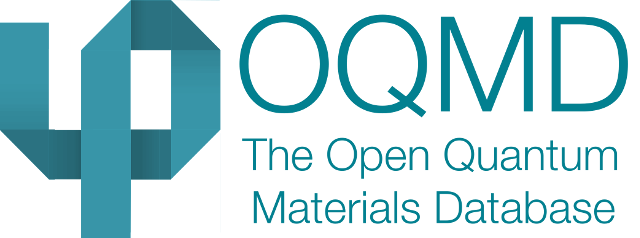Managing Computational Resources¶
Resources¶
Hosts¶
- class qmpy.Host(*args, **kwargs)[source]¶
Host model - stores all host information for a cluster.
- Relationships:
- accountallocation
- Attributes:
- name: Primary key.binaries: dict of label:path pairs for vasp binaries.check_queue: Path to showq commandchecked_time: datetime object for the last time the queue waschecked.hostname: Full host name.ip_address: Full ip address.nodes: Total number of nodes.ppn: Number of processors per node.running: dict of PBS_ID:state pairs.sub_script: Path to qsub commandsub_text: Path to queue file template.utilization: Number of active cores (based on showq).walltime: Maximum walltime on the machine.state: State code. 1=Up, 0=Full (auto-resets to 1 when jobs arecollected), -1=Down.
- exception DoesNotExist¶
- exception MultipleObjectsReturned¶
- check_running()[source]¶
Uses the hosts data and one of the associated accounts to check the PBS queue on the Host. If it has been checked in the last 2 minutes, it will return the previously returned result.
- static create()[source]¶
Classmethod to create a Host model. Script will ask you questions about the host to add, and will return the created Host.
Accounts¶
Users¶
Allocation¶
Project¶
Queue models¶
Task¶
- class qmpy.Task(*args, **kwargs)[source]¶
Model for a :Task: to be done.
A :Task: consists of a module, which is the name of a computing script, and a set of keyword arguments, specified as a dictionary as the kwargs attribute of the task. In order for a Task for be completed, it must also be assigned one or more :Project:s.
- Relationships:
- Attributes:
- idcreated: datetime object for when the task was created.finished: datetime object for when the task was completed.module: The name of a function in
scriptskwargs: dict of keyword:value pairs to pass to the calculationmodule.priority: Priority of the task. Lower values are more urgent.state: State code, given by the table below.
Task codes:
Code
Description
-2
being held
-1
encountered error
0
ready to run
1
jobs running
2
completed
- exception DoesNotExist¶
- exception MultipleObjectsReturned¶
- property errors¶
List of errors encountered by related calculations.
- get_jobs(project=None, allocation=None, account=None, host=None)[source]¶
Check the calculation module specified by the Task, and returns a list of
Jobobjects accordingly.Calls the task’s entry’s “do” method with the Task.module as the first argument, and passing Task.kwargs as keyword arguments.
- Returns:
List of Job objects. When nothing is left to do for the task, returns empty.
- Raises:
- ResourceUnavailableError:
Raise if for the specified project, allocation, account and/or host there are no available cores.
- property jobs¶
List of jobs related to the task.
- property projects¶
List of related projects.
- save(*args, **kwargs)[source]¶
Save the current instance. Override this in a subclass if you want to control the saving process.
The ‘force_insert’ and ‘force_update’ parameters can be used to insist that the “save” must be an SQL insert or update (or equivalent for non-SQL backends), respectively. Normally, they should not be set.
Job¶
- class qmpy.Job(*args, **kwargs)[source]¶
Base class for job submitted to a compute cluster.
- Relationships:
Taskvia taskAccountvia account. The account the calculation isperformed on.Allocationvia allocation. The allocation on which thecalculation is being performed.Entryvia entry- Attributes:
- idcreated: datetime object for when the task was created.finished: datetime object for when the task was completed.ncpus: # of processors assigned.path: Origination path of the calculation.run_path: Path of the calculation on the compute resource.qid: PBS queue ID number.walltime: Max walltime (in seconds).state: State code, defined as in the table below.
Job codes
Code
Description
-1
encountered error
0
ready to submit
1
currently running
2
completed
- exception DoesNotExist¶
- exception MultipleObjectsReturned¶
